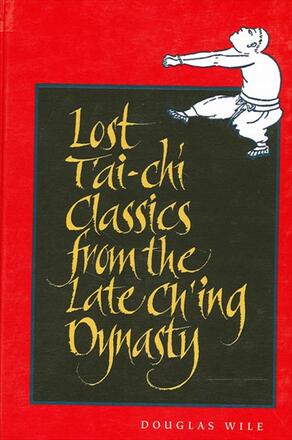
Lost T'ai-chi Classics from the Late Ch'ing Dynasty
Alternative formats available from:
Analysis of rich new material allows Wile to make a fresh survey of longstanding issues: the origins of T'ai-chi; the authorship of the classics; the differences between Wu, Yang, and Li; and the roles of such figures as Chang San-feng, Wang Tsung-yueh
Description
Douglas Wile translates and analyzes four collections of recently released nineteenth-century manuscripts on T'ai-chi ch'uan. These writings of Wu's older brothers Ch'eng-ch'ing and Ju-ch'ing, and his nephew Li I-yu, together with the transmissions of Yang Pan-hou, represent a significant addition to the seminal literature. The rich new texts allow us to make a fresh survey of longstanding issues in T'ai-chi history: the origins of the art; the authorship of the "classics;" the differences between Wu, Yang, and Li; and the roles of Chang San-feng, Wang Tsung-yueh, Chiang Fa, and the formerly missing link, Ch'ang Nai-chou. The original Chinese texts of the four new sets of classics have been appended for the convenience of Chinese readers and scholars.
The book reconsiders the world of the Wu, Yang, and Li families of Yung-nien and reconstructs it against the background of the Opium Wars, the Taiping Rebellion, and the decline of the Manchu dynasty. New biographical sources illuminate the domestic and political lives of the Yung-nien circle and their orientation to the late imperial intellectual trends. The development of T'ai-chi ch'uan in the nineteenth century is explored in the context of China's cultural response to the challenge of the West and the role of body-centered arts in Asia during the drive for independence and the ongoing search for national identity.
Douglas Wile is Associate Professor at Brooklyn College. He is the author of The Art of the Bedchamber: The Chinese Sexual Yoga Classics, Including Women's Solo Meditation Texts, also published by SUNY Press.
Reviews
"This book contains an enormous amount of information concerning all aspects of T'ai-chi ch'uan not available before. To say that the work is a major contribution to the field is an understatement; it dwarfs all other works so far published in the English language. This is a first-rate, scholarly book that will have a great bearing on the academic views concerning T'ai-chi ch'uan's history and value for present-day study. Because of his meticulous research and profoundly articulate text, Wile has redefined 'T'ai-chi ch'uan' for the academic world with clarity and, for the first time, with accuracy. " — Michael A. DeMarco, Journal of Asian Martial Arts